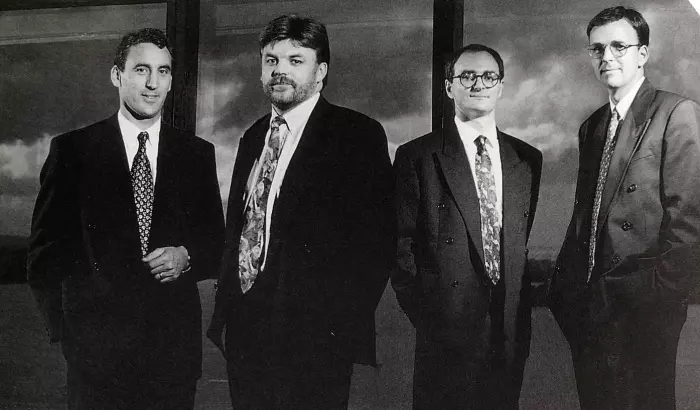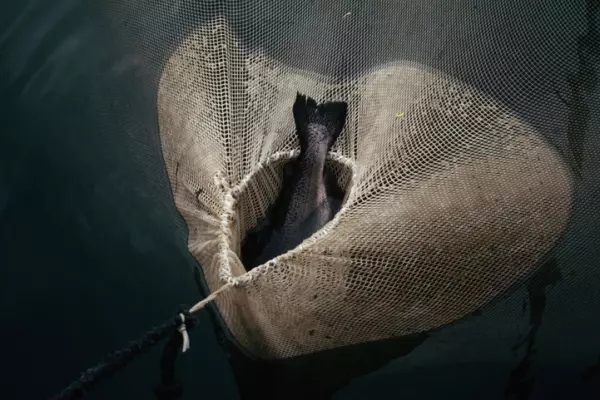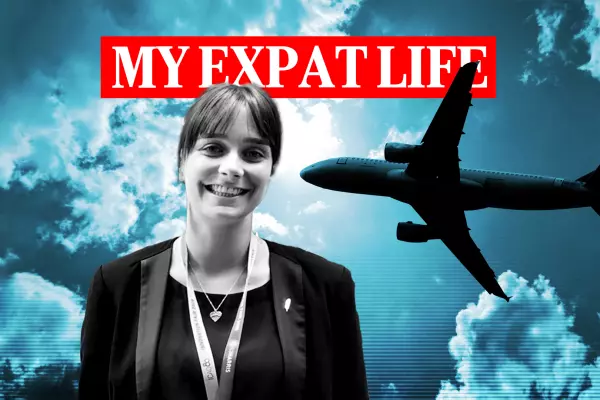In 1994, two new investment companies listed on the NZX. These were Infrastructure & Utilities NZ (Infratil) and Direct Capital Partners, with both of them raising $25 million through their IPOs.
Infratil now has a sharemarket value of more than $5 billion but Direct Capital was acquired by Emerald Capital in 1998.
The delisting of Direct Capital Partners was a huge lost opportunity for New Zealand investors.
Direct Capital Partners
Direct Capital Partners, which was promoted by private equity firm Direct Capital Management and its directors Ross George, Bill Kermode, Mark Hutton and Roger Harper, listed on the NZX as an investment company with a primary objective of acquiring holdings in unlisted New Zealand companies.
The directors of the new listed entity were John Fernyhough (chairman), Ian Farrant (deputy chairman), Wayne Cartwright, David Chetwin, Tony Frankham and Gareth Morgan.
The listed company was managed by Direct Capital Management for an annual fee of 1.25%. The management contract also contained a performance incentive/penalty provision equal to 1.25% of the change in the company’s audited consolidated net asset value over a financial year.
Fernyhough wrote in the prospectus: “While Direct Capital Partners’ manager will identify and evaluate investment opportunities, the directors (of the listed company) will retain sole investment discretion on proposals put to them by the manager.”
Direct Capital Partners listed on Oct 31, 1994, with its 50 cent partially paid shares opening at 42c.
Shortly after the second payment of 50c a share in June 1995, the $1 shares were trading at 90c.
Investments
Direct Capital Partners made a large number of purchases including:
• 20% of Blue Star Group for $9.8 million, with Eric Watson and the senior management team retaining the remaining 80%. This shareholding was sold for $13.25m.
• 40% of appliance manufacturer Robinson Industries for $6.3m.
• 25% of PC Direct for $4.16m. This was a high-profile company with Sharon Hunter as a founding director. This stake was subsequently sold for $7.1m.
• 3% of SkyCity for $12.1m before the casino company listed. This holding was sold for $18.2m.
• 49% of Nobilo Vintners for $5m.
• 13% of Genesis Research & Development for $2.75m.
• 32.5% of Communicado, the television and video production company, for $4m.
• 44.5% of Airwork (NZ) for $12m, with owner Hugh Jones retaining the remaining 55.5%.
• 25% of Ryman Healthcare for $7.5m.
• 33.3% of EFTPOS NZ for $7.4m.
Ryman Healthcare, Airwork (NZ), Genesis Research & Development and Nobilo subsequently listed on the NZX.
Investors showed little interest in Direct Capital Partners even though it made astute investments and had an aggressive share-buyback programme.
At the end of its June 1997 year, the listed company had a net asset backing of 91c a share, after adjusting for an earlier one-for-two rights issue at 50c a share. The company’s two largest investments were Airwork (NZ) and Ryman Healthcare, representing 20% and 13% of book asset value, respectively.
Direct Capital shares were trading at around 70c when the June 1997 year annual report was released, well below its conservative 91c-a-share asset backing.
Emerald Capital
In mid-1997, Emerald Capital announced that it had acquired an 8.35% stake in Direct Capital. Emerald Capital, which was managed by Andy Clements and Canadian-based Geoff Cummings, was mainly owned by Gardiner family interests in Canada.
However, Clements and Cummings also had interests in Emerald Capital.
Cummings was appointed to the Direct Capital Partners board in Oct 1997 and in April 1998, Emerald made a takeover offer for the NZX-listed company at 83c a share.
The target company’s board appointed Price Waterhouse Corporate Finance to prepare an independent appraisal report to assess Emerald Capital’s offer.
Appraisal report
The appraisal report contained almost no information on the investee companies, with Price Waterhouse explaining the situation as follows: “The investee companies are in most cases private companies with other shareholders. We have been requested to restrict information outlined in our report, as it will become publicly available. We cleared this with the NZX.”
Price Waterhouse assessed Direct Capital Partners’ value at between 79c and 88.5c a share, with a mid-point range of nearly 84c. This compared with the 83c offer price. The report appeared to value the investee companies below their purchase price even though they were all growth businesses.
It concluded: “In our opinion if the offer were to be withdrawn, it is likely that the share price would return to the trading level of between 58c and 68c and in the absence of buying support from Emerald Capital, may fall below this level.”
Direct Capital Partners’ independent directors unanimously recommended acceptance of the bid in the absence of a higher offer.
Aftermath
Direct Capital Partners delisted on July 17, 1998, after Emerald Capital paid $70.5m for a company where shareholders had contributed equity of $68.1m.
On the same day, Infratil had a $171m sharemarket value.
Less than 12 months later – on June 29, 1999 – Ryman Healthcare listed on the NZX, with Emerald Capital’s shareholding reduced to 20% through the IPO process. By the end of 1999, Emerald’s stake in Ryman was worth $43m. A 20% stake in the listed retirement company is now worth more than $1.4 billion.
The initial Direct Capital Partners investments, particularly Ryman Healthcare, Airwork (NZ) and EFPTOS NZ, indicated that the listed investment company could have been hugely successful on a longer-term basis.
However, an inadequate independent appraisal report and acquiescent directors who focused only on the short term meant that the Canadian-based Gardiner family, Andy Clements and Geoff Cummings were able to acquire the NZX company at a bargain-basement price. They subsequently made a killing when the true value of the former listed investment company’s assets was realised.
This was a major lost opportunity for the NZX and for New Zealand investors as Direct Capital Partners had the foundations, and an excellent management team, that should have enabled it to become another Infratil.
Disclosure of interests: Brian Gaynor is a non-executive director of Content Limited, the publisher of BusinessDesk, and of Milford Asset Management.
[email protected]














